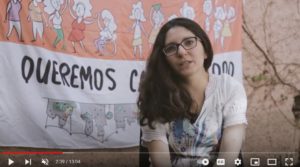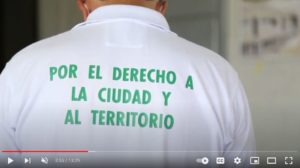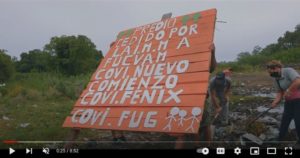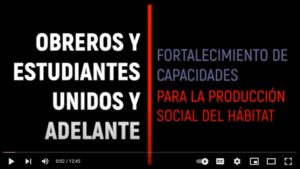For decades, Paulo Freire’s seminal work on emancipatory pedagogies has been augmented by the co-learning practices of social movements and grassroots organisations across the world. This series of short films tackles this question from the perspective of schools of the Habitat International Coalition in Latin America (HIC-AL). HIC-AL schools are an assemblage of learning experiences, developed and implemented by HIC Members, friends, and allies with a high degree of autonomy and shared pedagogic principles and practices.
We are delighted to announce the publication of the first four short films of this series (in Spanish), which have been developed by four HIC-AL members with creative support by La Sandía Digital, and curated by the Knowledge in Action for Urban Equality programme.
CISCSA’s ‘Queremos cambiarlo todo. Formación feminista por los derechos a la ciudad’ (We want to change everything: feminist formation for the rights to the city) shows the emancipatory power of feminist pedagogies implemented in the project ‘Voices of diverse women for safe, inclusive and sustainable cities’ in Córdoba, Argentina
Corporación Región & Fuerza Incluyente’s ‘Derecho a la ciudad y al territorio – Medellín ciudad accesible‘ (Right to the city and the territory – Medellín as accessible city) highlights the creative pedagogies through which the right to the city is carved and claimed by collectives of differently abled people in pedagogic spaces such as taxis and public squares.
FUCVAM’s ‘La vivienda es el principio y no el final’ (Housing is the beginning and not the end) synthesizes the long history of pedagogies underlying the Federation of the Uruguayan Mutual Housing Cooperatives, and how they are shaping and being shaped by different relations to the state as well as intergenerational and gender dynamics.
UNC’s ‘Fortalecimiento de capacidades para la producción social del hábitat’ reflects on decades of weaving networks of pedagogical experiences to strengthen local to regional capacities for the social production of habitat, from the Argentinian experiences of Taller Total in 1970s to today’s Iberoamerican Diploma on Participatory Sustainable Habitat Design.



